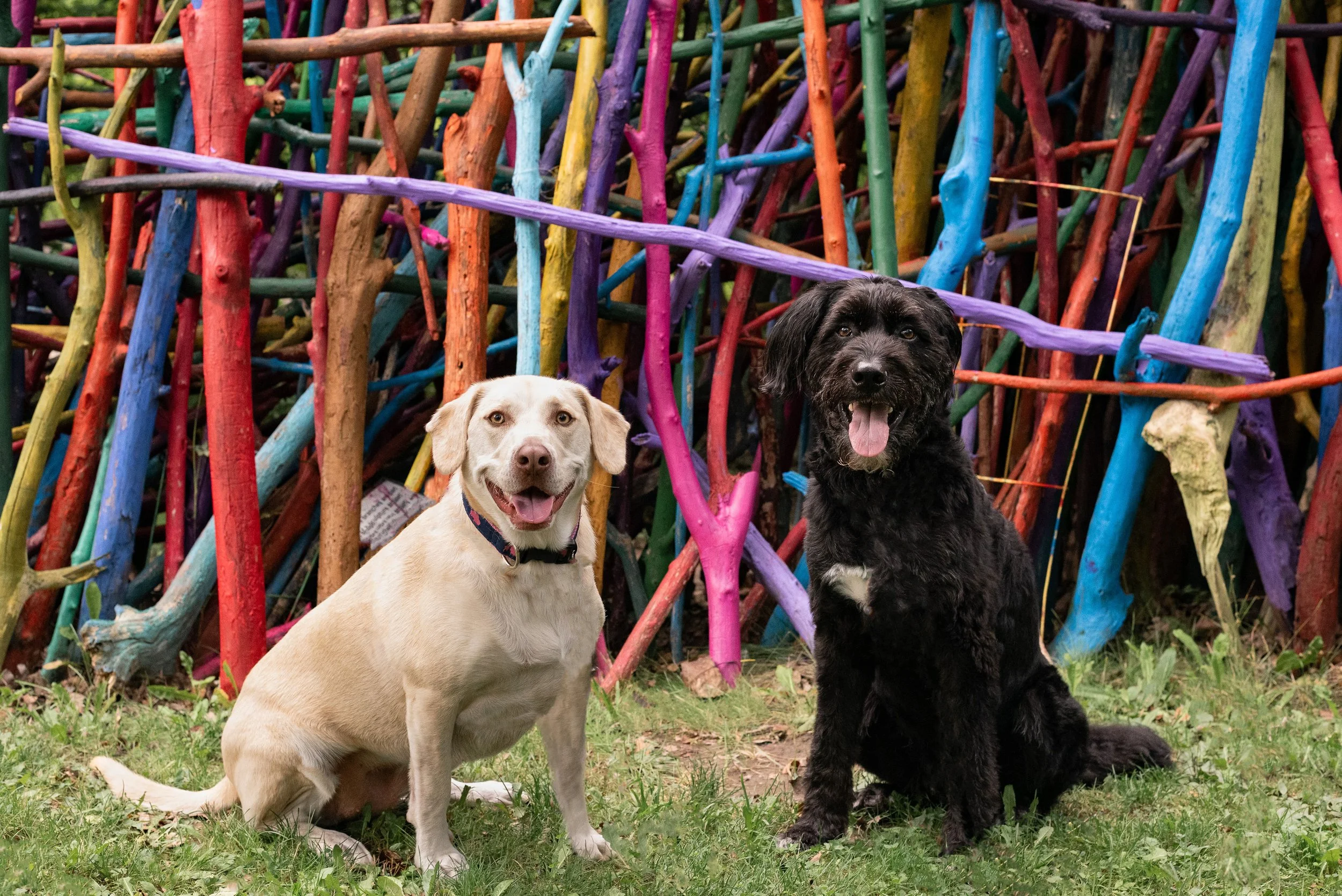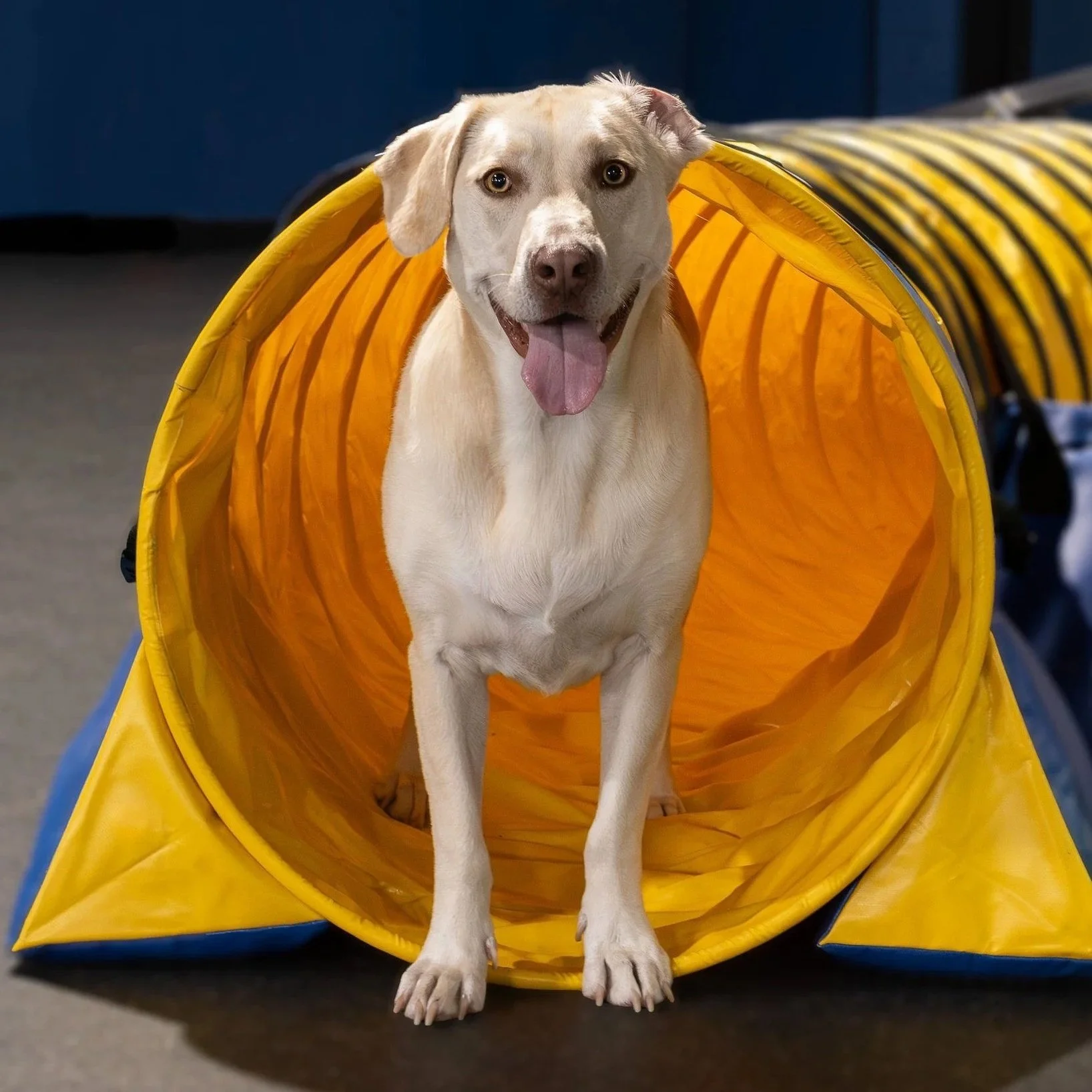The Project Dog: Julie’s Story
Welcome! We are looking forward to hearing Julie’s story. Before we get started, tell us a little bit about yourself.
My name is Jessica and you may have seen me around with my husband, Joe and our other dog, Jake. I always wanted to train agility and I knew I wanted dogs when I had a home of my own. We love being involved with the dog community; from NADAC trials, to Agility League, and volunteering. Jake was our first dog. I would have a whole house full of dogs if I could, and Jake is outgoing and very social, so I convinced my husband we should get a second dog.
Julie and Jake at Charles Burchfield Nature Center, Unleashed in the Studio
When did you first realize Julie was a "Project Dog"?
We rescued Julie when she was only 8 weeks old. She was labeled as a labrador/golden retriever mix. I was really looking for another agility dog. Easy to please, good drive, and social. We first noticed reactivity before she was even 16 weeks old. The first reaction I remember is when she was in puppy class. She had a huge mohawk nearly constantly; it ran from her neck all the way down to her tail. I remember, naively, asking Noelle if she thought Julie could actually be some kind of ridgeback mix because of how frequently she had the mohawk. Noelle kindly explained to me that those were her hackles and she might have an issue with arousal. Shortly thereafter we were doing an exercise in puppy class where the dogs had to do a polite greeting with a stranger. A very kind man in our class walked over to Julie for the exercise. Her hackles came out in full force and she barked at him. That was the first time I realized she might have a problem. When we got her DNA test back later we learned that she is mostly Great Pyrenees and Pitbull.
Julie as an 8-week old puppy on her second day at home
It sounds like you had big plans for Julie. Have you ever felt like you were missing out on things you wanted to do with Julie because of her reactivity?
Absolutely, and for me, that's one of the most difficult parts of being her human. I wanted her to be able to take every walk with us and Jake. To be able to have friends and family over on a whim. I wanted her to be able to compete in NADAC Agility trials like Jake. I wanted her to be able to get love from strangers. I wanted her to be able to play with my friends' dogs and go out for ice cream or to a store. Despite training and constantly working with her, there are just some things that are not realistic, so I've had to change the goalposts. We can take walks, we just need to do it on off hours or on very wide paths. We can have dog savvy friends over, and people who are patient enough for her to let them into her club. She can't compete in NADAC but she loves Agility League and with some minor modifications (like ensuring she has extra space and can't see out of the ring) she also goes to her weekly agility class. She has some dog friends - more than I ever thought she could have - and some human ones too! She gets ice cream delivery service and enjoys it well enough at home. So, while there are definitely things she is missing out on, we have been able to make modifications so she can still live her very best life.
It can be challenging to adjust our expectations when we find out our dogs are not able to participate in or enjoy the things we were hoping to do with them. It is great that you have been able to set some new goals for success. What accomplishment are you most proud of?
I was beaming with pride when Julie passed her CGC. It took a lot of work, and greeting strangers politely was not something I thought she'd ever be able to do, but she did it! I am also so proud of how well she does in Agility League. Despite there being new people and dogs around she focuses on the course and excels! She is nearing her first title and I am sure she'll get it this season. I am also very proud of her latest vet visit. Like many dogs, Julie doesn't love the vet. But for the first time, the vet was able to do a full exam as if Julie wasn't even reactive. Our vet even commented that she was so proud of how well Julie was doing and how most people would have given up on her but we haven't. That was a very validating experience.
Thank you so much for sharing, these are great accomplishments. We would love to always focus on the positive but it is also important to acknowledge the biggest challenges we face with our dogs. Were there moments you felt like giving up? What kept you going?
100%. Especially in the beginning. No one expects their weeks-old puppy to be reactive. I thought we could just...give her back and try again. But I just don't give up that easily. Later, when the reactions got bigger we sought out the help of a behaviorist. She made it very clear that we were the best possible scenario for Julie - a quiet, no child house, with one bonded dog. She also made it clear that in all likelihood if Julie was anywhere else she would have been euthanized. That's what always keeps us going. We're not perfect, but we're perfect for her and she deserves the best possible life.
It sounds like you have provided Julie with the perfect home and have learned a lot along the way. Have you discovered any myths about dog training or reactivity during your journey that you no longer believe?
Before I had Julie I truly believed that if you got a puppy (instead of a grown dog) and trained them, you could turn them into whatever you wanted them to be. I also didn't believe that puppies could be reactive - that reactivity was a result of abuse or neglect. Now I know that genetics play a huge part in dog behavior. Training can help, of course, but there are simply some behaviors that are innate. We tried to do everything right. We had socialization checklists and she started training immediately upon bringing her home. In addition to training at home she's been to puppy classes, basics classes, agility classes, CGC, she participated in trainer-observed playtime, and she has a behaviorist. She certainly is not a product of abuse or neglect, and while she's made tons of progress, she still reacts inappropriately in certain situations. But we won't ever give up on her!
Julie enjoying a fall walk at Como Lake Park.
Having gained so much experience working with Julie, what advice would you now give to someone who is just discovering their dog is reactive?
Be patient. Working on reactivity is not a linear journey. There are days that feel like they have made huge strides forward and days that feel like you never worked on their reactivity at all. Your circle might get smaller, but those people and dogs that put the effort into becoming part of your dog's life are invaluable. There is a whole community of folks out there that are here to help and support you. Try to find creative solutions to help your dog reach the goals you've set for them. Your bond with your reactive dog will be so much stronger because of all the time and energy you put into their success. And finally, don't take others' negative comments to heart. Most people have never had a reactive dog and don't know the stress you are under every time you leave the house. Just know that you're doing the very best you can for them and they love you!
Thanks so much for sharing Julie’s story with us today, we really enjoyed hearing about your experience and it is obvious how dedicated you are to Julie. Is there anything else you would like to share with our readers?
Julie is the very best girl. She is so sweet and so affectionate. She is goofy and full of love. Nearly everyone who knows both of our dogs like her better. Even when she struggles you can tell that she is trying SO hard to do what we've asked. And, not for nothing, I never feel safer than when she's home with me. She has definitely taught me patience and made me a far better person and trainer than I was before I had her. I love my Julie Bean.
Julie enjoys Agility training at Supernova Dogs, Unleashed in the Studio
We have had the pleasure of working with Jes and Julie since their very first puppy class! This interview with a really wonderful way to dive even deeper into their story, their challenges, and the life lessons they have learned along the way.
If you have a “Project Dog” and would like to share their story with us, contact us.




